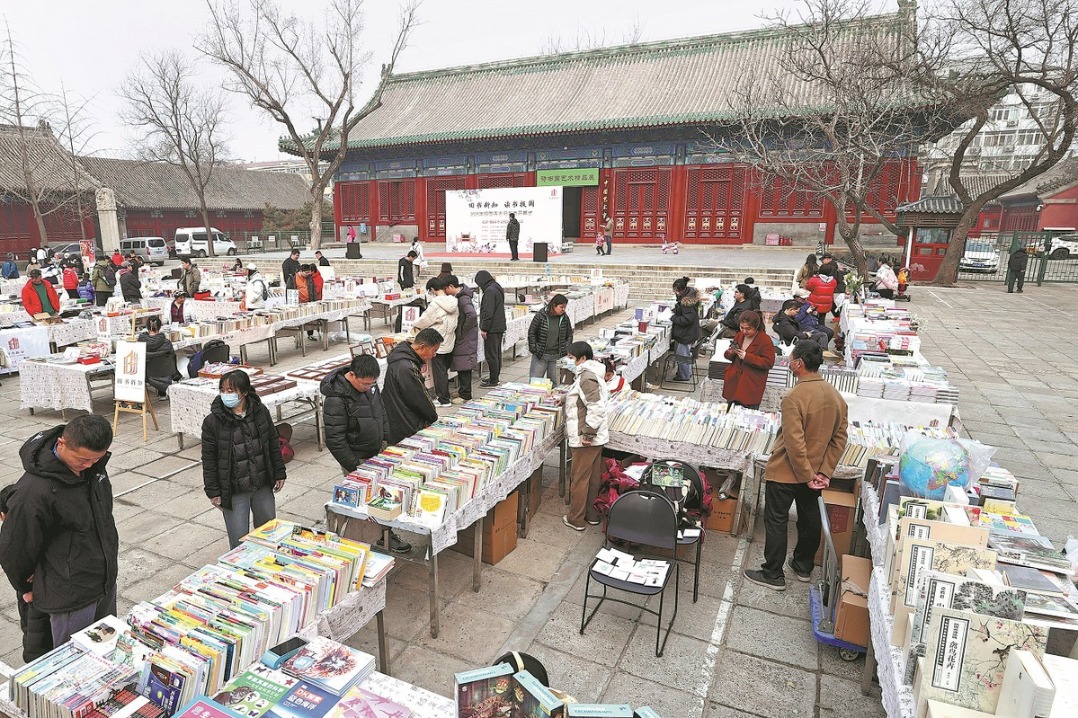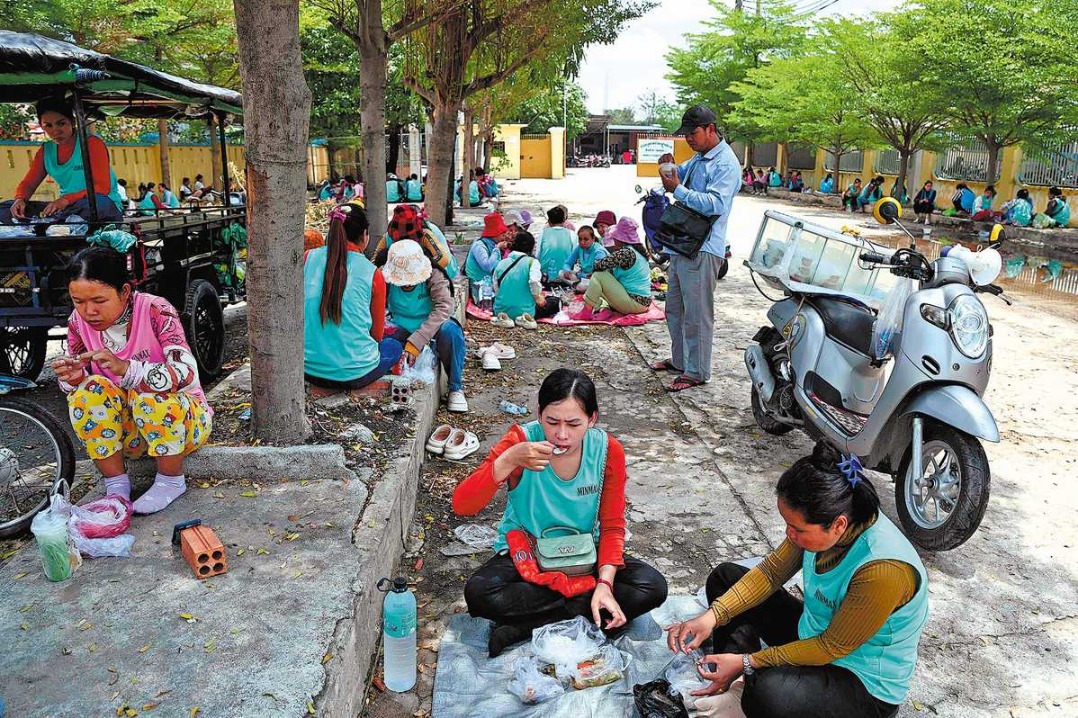Rural delivery fuels Baoshan coffee market
Local bean growers find way to take their varieties to the world as logistics infrastructure progress shores up access, reputation

On a narrow road twisting through the Gaoligong Mountains of southwestern China, the refreshing scent of ripe coffee cherries lingers in the air. The slopes of Yunnan's Baoshan region are blanketed in deep green coffee trees, with their crimson fruit glistening under the sun.
Just years ago, this lush harvest remained largely unknown beyond the valleys. Today, thanks to an expanding rural delivery network, Baoshan's prized small-bean coffee is reaching customers around the globe.
Once isolated by geography and logistics, Baoshan's coffee industry is now thriving, riding a wave of e-commerce and a rapidly growing parcel delivery infrastructure that is reaching deep into China's remote villages. This fusion of agriculture and logistics is transforming lives, fueling rural vitalization and pushing Chinese coffee into the global spotlight.
A sip of recognition
In March, President Xi Jinping praised Yunnan coffee during an inspection tour of the province, calling it representative of China's coffee industry and noting its rising popularity abroad. That recognition has further boosted the momentum behind Baoshan's small-bean coffee — known for its delicate acidity, floral aroma and smooth finish.
Baoshan sits on the northernmost edge of the world's "coffee belt", a strip between 25 degrees north latitude and 30 degrees south latitude, known for ideal growing conditions. Nestled between the biodiversity-rich Gaoligong Mountains and the roaring Nujiang River, Baoshan's plantations range from 600 to 1,900 meters above sea level. Volcanic soil, abundant rainfall and a daily temperature swing of up to 16 degrees Celsius make it a prime location for high-quality Arabica beans, especially the Typica and Bourbon varieties.
With a coffee-growing history spanning more than 70 years, Baoshan has evolved from a niche producer to a recognized brand. Its beans have won international accolades and, in recent years, earned geographic indication protection both in China and the European Union.
But even as the beans earned gold medals abroad, getting them out of the mountains remained a problem for the locals.
Decisive initiative
"There was a time when I had to carry sacks of coffee beans on my back, take a bus to Kunming, and then catch a train to Beijing or Shanghai just to find a buyer," said Fan Qizuo, a coffee grower from Zuoyuan Estate, perched 1,400 meters above sea level.
Fan has spent nearly four decades cultivating coffee. In the early 2000s, when prices plunged and transportation options were limited, many farmers gave up. Fan persisted. Now a recognized coffee expert and collaborator with the Yunnan Academy of Agricultural Sciences, he has developed several new coffee strains and has won top prizes in national specialty coffee competitions.
"Now I just call the courier. They come to my farm, pick up the beans, and in two or three days, the coffee will be in a cafe in Shanghai," Fan said, as workers packed fresh-roasted beans into parcel delivery boxes. His estate now ships around 30 metric tons of coffee daily during peak season.
The turning point came in 2018, when the national "Delivery to Villages" initiative, promoted by the State Post Bureau of China, brought last-mile courier services to remote areas like Baoshan's Xinzhai village. "It was a game changer," said village Party secretary Wang Jiawei. "Coffee finally had a way out."
In Xinzhai's e-commerce and parcel delivery center, 20-year-old delivery worker Duan Zhimao scanned and shelved dozens of parcels bound for urban buyers. "During peak tourism season, we send out 300-400 packages of coffee a day," he said.
That number was unthinkable a decade ago.
Logistics as lifeline
While China's major cities enjoy lightning-fast deliveries, rural areas lagged behind. But in recent years, Yunnan's provincial and local governments have invested heavily in building rural logistics infrastructure. In Baoshan, village-level courier service coverage now exceeds 88 percent, according to Rong Rong, deputy director of the Yunnan Postal Administration.
"Express delivery is no longer just about parcels — it's a growth engine for rural industries," she said.
The numbers back that up. Last year, Baoshan shipped over 12 million coffee-related parcels, driving more than 20 billion yuan ($2.8 billion) in online transactions — a 32 percent increase from the previous year. The expanding delivery system helped save over 12 million yuan in logistics costs through improved integration between passenger, freight and postal networks.
To further accelerate growth, Baoshan's government is launching an initiative — constructing one logistics hub, one e-commerce park, and one centralized coffee warehousing and distribution center; ensuring each township has at least one service station, and each village has at least one delivery center.
The plan also includes exploring air, rail and direct-line delivery options to improve speed and lower costs, according to Zhao Lin, head of the Baoshan postal administration.
"Without express delivery, Baoshan coffee simply wouldn't reach the market," said Li Xiaobo, president of the Baoshan Coffee Industry Association. "Now, 95 percent of our sales are online."
From quantity to quality
Baoshan is not just exporting beans — it's exporting a story of transformation. Since 2022, the city has prioritized premiumization in the coffee industry, shifting from volume-based growth to quality-driven development, from producing cheap instant coffee to small-batch, single-origin, hand-roasted beans.
Specialty coffee — defined by the Specialty Coffee Association as scoring 80 or above on a 100-point scale — is now at the heart of Baoshan's strategy. Li said the rate of specialty-grade beans jumped from 40 percent in 2022 to 70 percent last year in Baoshan.
Farmers like Duan Huizhi, whose coffee farm sits at 1,100 meters above sea level, have embraced the shift. "We're no longer just growers," Duan said, loading freshly roasted beans into an express delivery box. "We're curators of quality."
In his village, couriers stop by daily to collect packages. "Before, sending coffee meant walking over mountains to reach the town. Now, the courier station is just a few hundred meters away," Duan said. His beans reach Shanghai customers within 48 hours.
Another farmer, Yang Guang, began cultivating coffee in 1994. Today, he manages over 20 varieties of coffee seedlings and runs a small-scale processing facility. "Specialty coffee demands freshness and speed. Logistics is critical," he said. Just days earlier, he shipped a few rare seedlings to a buyer in Shanghai using SF Express. They arrived within three days.
Perfect blend
Yunnan has grown coffee for more than 130 years. Baoshan alone contributes up to 20 percent of the province's output. But until recently, the lack of infrastructure and access to markets stunted the region's potential.
That's changing. Baoshan now boasts more than 500 registered coffee trademarks. Social media, livestreaming and influencer marketing are helping raise the profile of local brands. Pop-up cafes, farm tours and barista competitions are drawing visitors. And most importantly, coffee is putting more money in farmers' pockets.
"Last year, a well-managed mu (one-fifteenth of a hectare) of coffee brought in around 15,000 yuan," Fan Qizuo said. His cooperative now includes over 2,000 farmers. "Coffee didn't just change my life, it changed our whole community."
Express delivery, once a distant urban service, has become an essential rural lifeline. As China deepens its efforts to narrow the urban-rural divide, Baoshan's coffee story offers a potent blend of tradition and innovation, showing how targeted investment in logistics can unlock the potential of even the most remote regions.
"We always believed our coffee was good," said Fan. "Now, thanks to delivery, the world also gets to taste it."

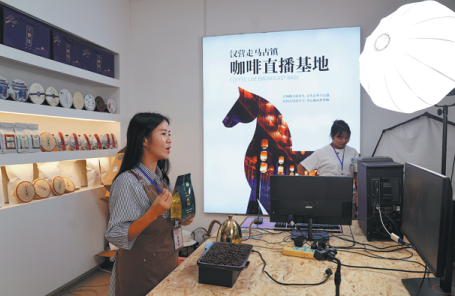
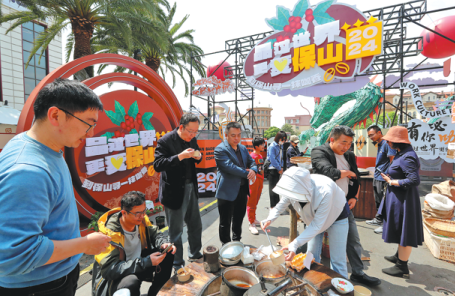
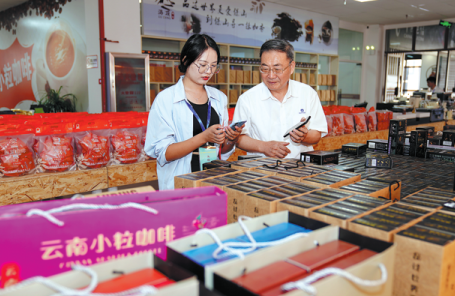
Today's Top News
- Minister calls for ensuring SCO's role as anchor of stability
- China's tightened drug control measures bring major results
- European leaders' bias in Israel-Iran conflict disturbing
- AIIB hailed as pioneer in intl financial governance
- When the young embrace experience consumption
- Safeguarding the UN's core mission
















